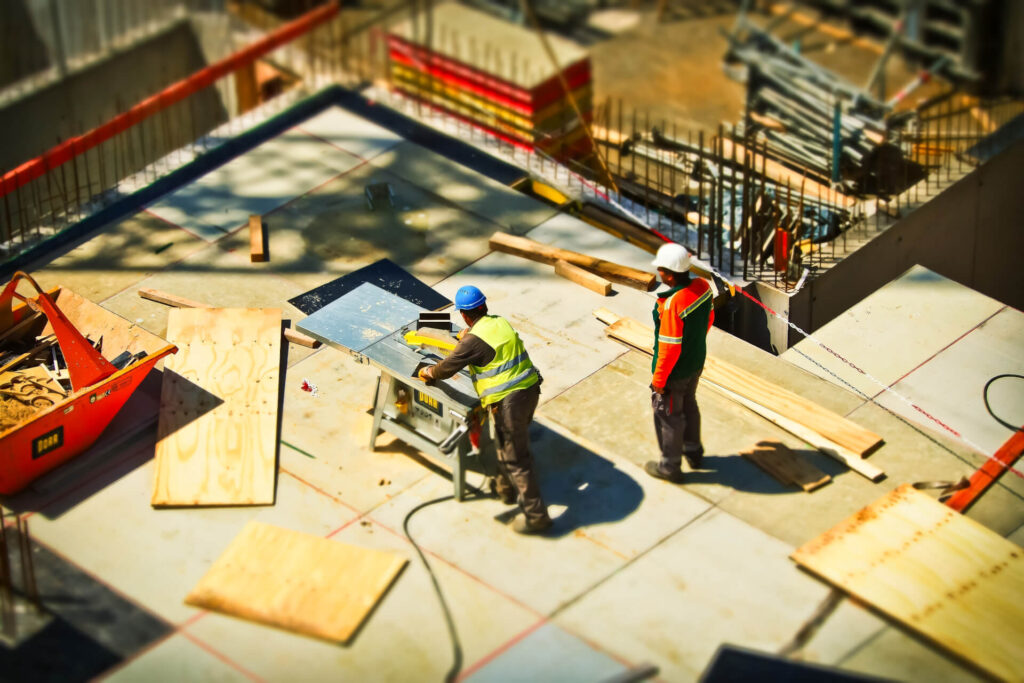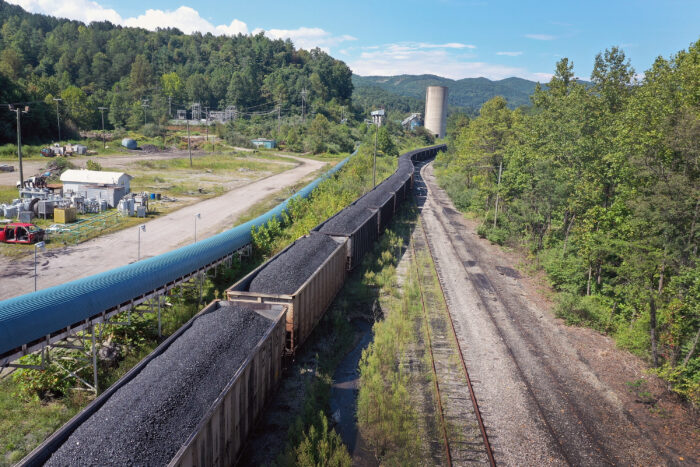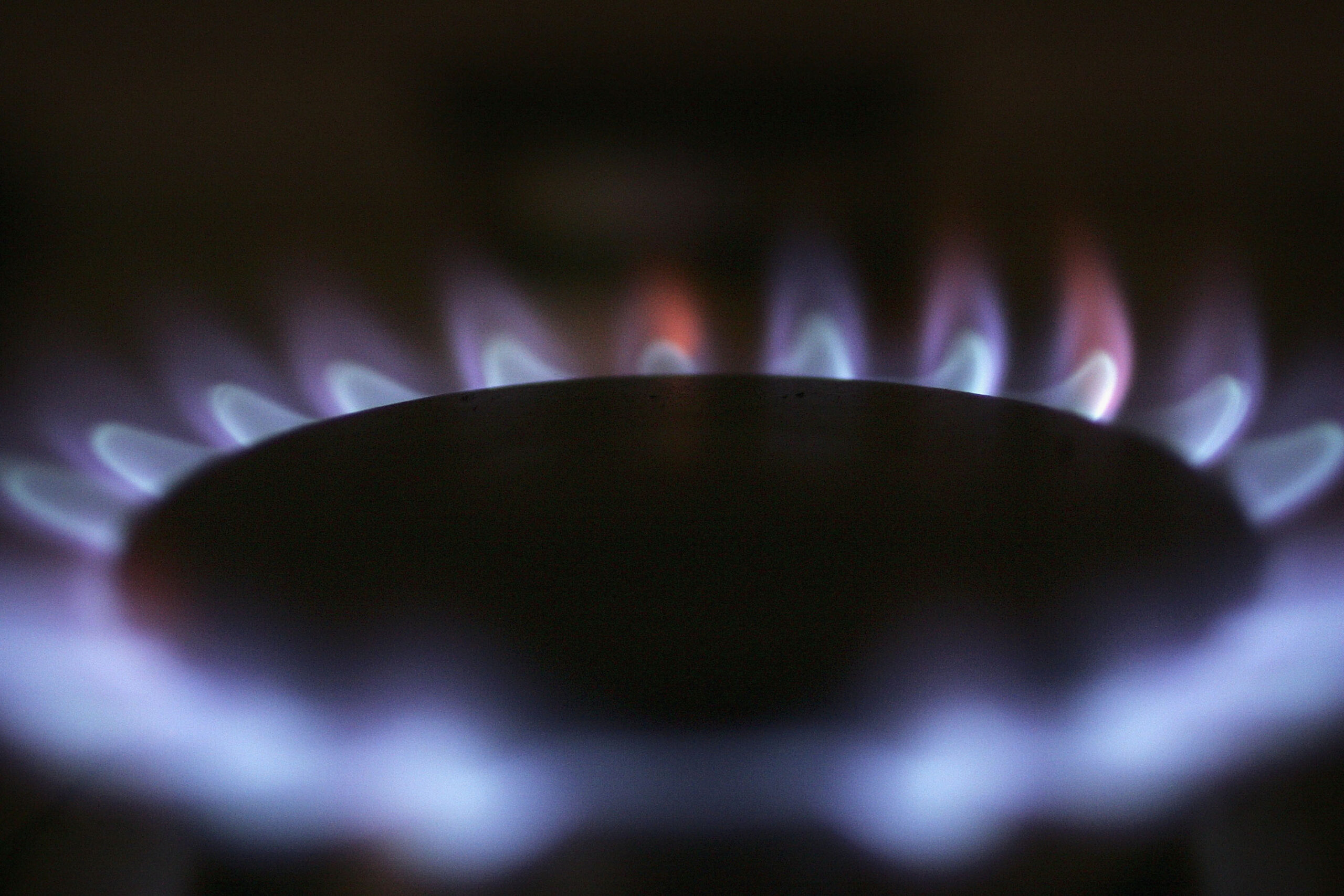Powerful Groups Take Aim at Aggressive Building Standards in Climate Legislation

A powerful array of utilities, building industry groups, energy companies and restaurateurs are lining up to defeat a key provision of major climate change legislation that legislative leaders are hoping to push through the General Assembly over the next few weeks.
They’re objecting to a measure that would impose strict emissions reductions standards on the building industry and push for new commercial and residential building construction to use only electric sources for heating, with the goal of achieving net zero carbon emissions for the building sector by the year 2040.
Opponents are suggesting that the goals in the legislation — and the timeline for achieving them — are too ambitious and too costly for too many industry sectors.
“No state has adopted a building code that gets to 100% electrification so quickly,” said Charles Washington, director of governmental and external affairs for Baltimore Gas & Electric.
Washington was one of dozens of business advocates who testified against the legislation in the House Environment and Transportation Committee on Friday afternoon, during a hearing that lasted 4 1/2 hours. The same provisions of the House bill, which was introduced by the vice chair of Environment & Transportation, Del. Dana M. Stein (D-Baltimore County), and by the chair, Del. Kumar P. Barve (D-Montgomery), are included in the sweeping Climate Solutions Now Act of 2022 legislation that is slowly making its way through the state Senate.
At the same time the House was holding its marathon hearing virtually, the Senate Education, Health and Environmental Affairs Committee convened an in-person markup Friday of the broader climate bill, which also lasted about 4 1/2 hours. The senators discussed what was billed as the less controversial aspects of the bill, which would set the state’s greenhouse gas emissions reduction goal at 60% of 2006 levels by 2030. They are expected to tackle the building standards during a voting session on Tuesday.
Proponents of the stricter building codes said they’re necessary because the building sector is a major contributor to global warming.
“House Bill 831, in my opinion, is the most important bill we’ll have before this committee this session,” Barve said.
The legislation largely aligns with recommendations from the bipartisan Maryland Climate Change Commission, which voted 24-2 last fall to support strengthening green building standards in the state (two Hogan administration officials who sit on the panel, Maryland Energy Administration Director Mary Beth Tung and state Planning Secretary Robert S. McCord were the two dissenting votes; the commission co-chair is Maryland Secretary of the Environment Ben Grumbles).
The bill would require the state government to set up building codes by 2024 designed to reduce carbon emissions in the building sector by largely requiring all new construction in the commercial and residential sectors to use electric power, rather than natural gas, to provide space and water heating. The legislation would also require the Maryland Department of the Environment to develop, in Stein’s words, a “flexible building emissions standard” for existing buildings. Commercial buildings of 25,000 square feet or larger would be required to generate zero carbon emissions by 2040, and the bill aims to eliminate all greenhouse gas emissions from the building sector by that year as well.
But the bill as written provides plenty of flexibility for various business sectors, Stein said.
“Builders can seek a variance or an alternative compliance pathway,” he said. The bill does enable builders to use mixed fuel equipment or renewable natural gas if it can be proved that electrifying new buildings is more costly. And while the measure carries a requirement that existing government-subsidized low-income housing must electrify by 2030, [other] existing homes do not have to electrify or in fact make any changes under the bill.”
Stein and other supporters of the bill, including architects and environmentalists, said electrifying the building sector will provide cost savings to builders and consumers in the long term as well as drastically reduce carbon emissions. And a buildout of the electric grid would not be not necessary, they said, despite what some critics of the legislation contend.
“Electrification is the lowest cost path for residential customers,” said David S. Lapp, the head of the Maryland Office of People’s Counsel, which represents consumers’ interests in utility matters before government agencies. And as Ben Roush, an engineer and former chair of the Maryland chapter of the U.S. Green Building Council pointed out, most gas equipment needs electric power to operate anyway.
But dozens of utility companies, building interests, executives of oil and gas heating companies and restaurant groups said the legislation could jeopardize their livelihoods and make the state’s energy markets less reliable. They have upped the volume of criticism and appeared more organized than they were earlier this month, when the Senate committee held its almost 5-hour hearing on the Climate Solutions Now legislation.
Several of the lobbyists for these business interests said they supported the idea of carbon reductions in the building sector but felt the state would be moving too swiftly and recklessly if the legislation is adopted.
“I urge you to work toward an energy transition that’s less abrupt,” said Tom Ballentine, vice president for policy and government relations for NAIOP Maryland, the commercial real estate development association.
“We’re happy to discuss climate change as always, and we think there are always things we can do to make our buildings more efficient,” said Lori Graf, CEO of the Maryland Building Industry Association. “But this timeline moves very fast.”
“Our opposition to this bill should not be looked at as Washington Gas opposing decarbonization,” said Brandon T. Todd, the former Washington, D.C., city council member who is now director of corporate policy at the utility.
Melvin Thompson, senior vice president for government affairs and public policy of the Restaurant Association of Maryland, said widespread electrification could be challenging for restaurants, most of which use gas stoves, because electric power “lacks the kind of performance that commercial kitchens require” and may also make it harder for restaurants to meet sanitation and public health standards.
Craig N. Mathies Sr. (D), president of the Somerset County Board of Commissioners, said Somerset businesses and other institutions are expecting to benefit from the extension of natural gas pipelines into the county and fretted that passage of the building standards bill “will hinder our ability to grow and thrive.”
Whether the coordinated opposition to the building electrification portion of the climate legislation will impede its progress is an open question, when legislative leaders seem committed to passing the measures intact. But utilities and the building industry often hold great sway in Annapolis.
Four environmental groups have scheduled a news conference for Monday afternoon to urge lawmakers to pass the climate bills, and they are expected to also attempt to rebut some of the arguments that have been laid out against the carbon-free building standards.
Barve said he hoped to schedule “one big voting session” for his committee this coming Friday.




 Creative Commons Attribution
Creative Commons Attribution